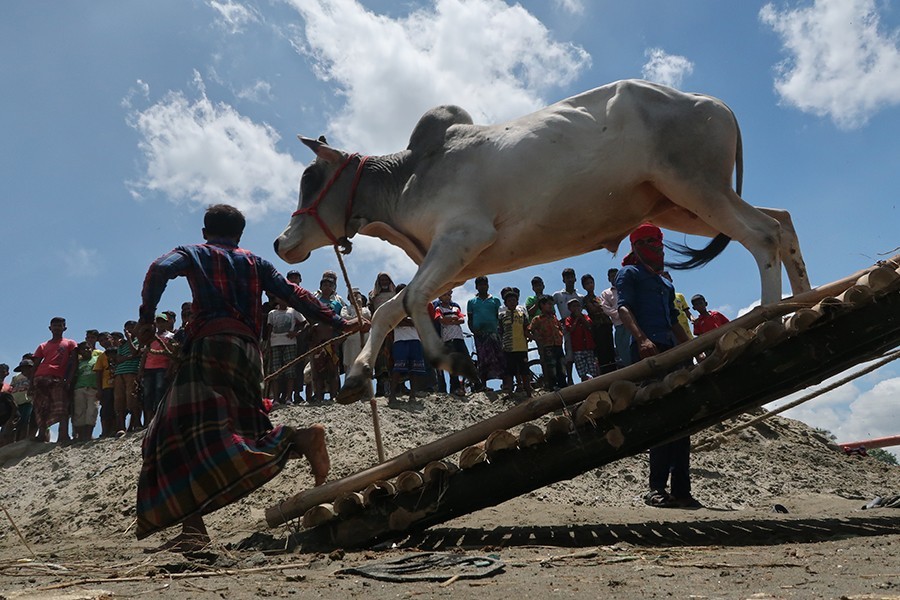The government is not in favour of importing cattle from the neighbouring countries with a view to protecting the interest of the domestic livestock sector.
A government body-- Department of Livestock Services (DLS)--says 'no' to a proposal of the commerce ministry to allow cattle import from the neighbouring countries.
If cattle are imported from these countries, the DLS fears it will massively affect the country's developing livestock market.
Even harmful trans-boundary animal diseases like Zoonotic flu, avian flu, anthrax and BSE may enter the country only to put public and animal health at risks.
In a recent hearing on cattle import from Myanmar, the local livestock farmers expressed deep concern over the import proposal.
It would be suicidal for the local livestock sector as its growth would be badly affected if the government allows cattle import, local farmers said.
The ministry recently wrote a letter to the Ministry of Fisheries and Livestock (MoFL) seeking its opinion on cattle import following the request of Cox's Bazar Shah Porir Dwip Cattle Cooperative Association.
The MoFL asked the DLS to give opinion to the commerce ministry.
After receiving the DLS's opinion, the MoFL sent it to the commerce ministry.
The association had requested the commerce ministry to take step on permission to import cattle through Teknaf corridor from Myanmar.
Aiming to increase the production of meat, milk and eggs, the DLS is relentlessly working to meet the local growing demand across the country, a senior official said.
Currently, there are 68,777 cattle farms, 42 buffalo farms, 8,953 goat and sheep farms and 86,280 chicken farms registered with the DLS.
There are 24.5 million cows, 0.15 million buffaloes, 0.36 million sheep, 0.266 million goats and about 3.8 million poultry birds in the country.
More than 0.68 million (681,582) people are now engaged in production of safe and healthy meat.
Sector insiders said about 40-45 per cent of the country's total meat production comes from poultry.
From 2015 to 2021, it has been possible to meet 100 per cent demand of sacrificial animals from the locally produced cattle.
In the last fiscal year (2021-22), the domestic production of meat was 8.47 million tonnes against the demand of 7.43 million tonnes.
The country has achieved self-sufficiency in producing meat at the rate of 120 grams per person per day.
The first and main goals of the 2030 SDGs announced by the United Nations are to end poverty and ensure freedom from hunger and malnutrition, one of the sources of which is livestock.
In the last 10 years, milk production has increased by almost 3 times, meat production by 7 times and egg production by 3 times due to various incentive programs taken by the government, the DLS data.
Bangladesh has now achieved self-sufficiency in meat and egg production. Export of meat and meat products has started during the current government.
Around about 20 million people and 0.5 million families are directly and indirectly involved in cow rearing activities at the poor and marginal levels.
In this circumstance, if cattle are imported, there will be extreme despair among the farmers and they will face financial loss, according to DLS.
Besides, importing cattle or meat from abroad will have a direct negative impact on local meat production and many firms may be closed down.
Also, institutional farmers, marginal farmers, people who returned from abroad and unemployed people from private sector are involved in cattle rearing during this COVID-19 pandemic period.


